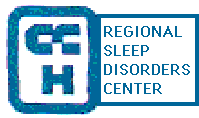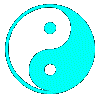1.
There is something wrong with sleep that makes it non-refreshing.
2.
There is a problem with the brain mechanisms which normally
should keep one alert (whether caused by primary problems
within the brain or its chemistry, or by other factors (such
as sedating medications or thyroid problems).
The most common causes of severe
sleepiness beginning or progressively worsening in adults are
SLEEP APNEA and RELATED BREATHING DISORDERS DURING SLEEP.
If the problem instead is a primary disorder
of brain chemistry, NARCOLEPSY is the leading diagnosis. As outlined
elsewhere on this web site, people with narcolepsy are diagnosed
either by a clear-cut history of their having had cataplexy,
or via their demonstrating REM sleep in two or more daytime naps
on a Multiple Sleep Latency Test.
(The latter test is not 100% reliable, since some patients with classic
narcolepsy may not demonstrate REM sleep during any of the naps on a given
day, simply by chance).
-Idiopathic hypersomnia (or hypersomnolence.
as it has been called) is a diagnosis applied to people who are excessively
sleepy--but not because there is anything apparently wrong with their
sleep, and not because of narcolepsy or any other identifiable cause.
It
is basically a diagnosis of exclusion: one that is made by excluding
all other possible diagnoses.
-Idiopathic is a more dignified way
of saying that we don't know exactly what causes the problem.
-Hypersomnia is not the commonest diagnosis...but
it is not rarely made, either.
-Hypersomnia does not appear to be one
single entity. Various abnormalities of brain chemistry have been
suggested in studies of such patients or suspected as being potential
causes.
The brain is complex to the point that there would be many
different possible ways to impair alertness.
--What
are three common features of patients diagnosed with idiopathic
hypersomnia?
1.
People given this diagnosis are likely to sleep for long periods
of time without feeling refreshed. They often do not feel any better
after taking naps.
It has been said that a history of not feeling refreshed
after sleep will reliably differentiate sleep apnea and hypersomnia
from narcolepsy, but I personally don't believe it. I have a number
of patients with definite narcolepsy who find naps unrefreshing, and
who also wake up feeling groggy and exhausted in the morning.
2.
People with idiopathic CNS hypersomnia often have family histories
of this same sort of problem, of true narcolepsy or of both entities.
Not infrequently, hypersomnia seems hereditary.
3.
For the most part, patients diagnosed as having idiopathic hypersomnia
report that their sleepiness began late in childhood, during their
teen years, or in their early twenties.
Idiopathic
hypersomnia resembles
narcolepsy in its typical age of onset.
For
this reason, I am hesitant to make this diagnosis in people who
develop sleepiness later in life. There is a greater possibility
that people with late onset of sleepiness instead suffer from
a specific underlying cause: one that should be identified and
managed with specific treatment. They deserve a thorough evaluation.

